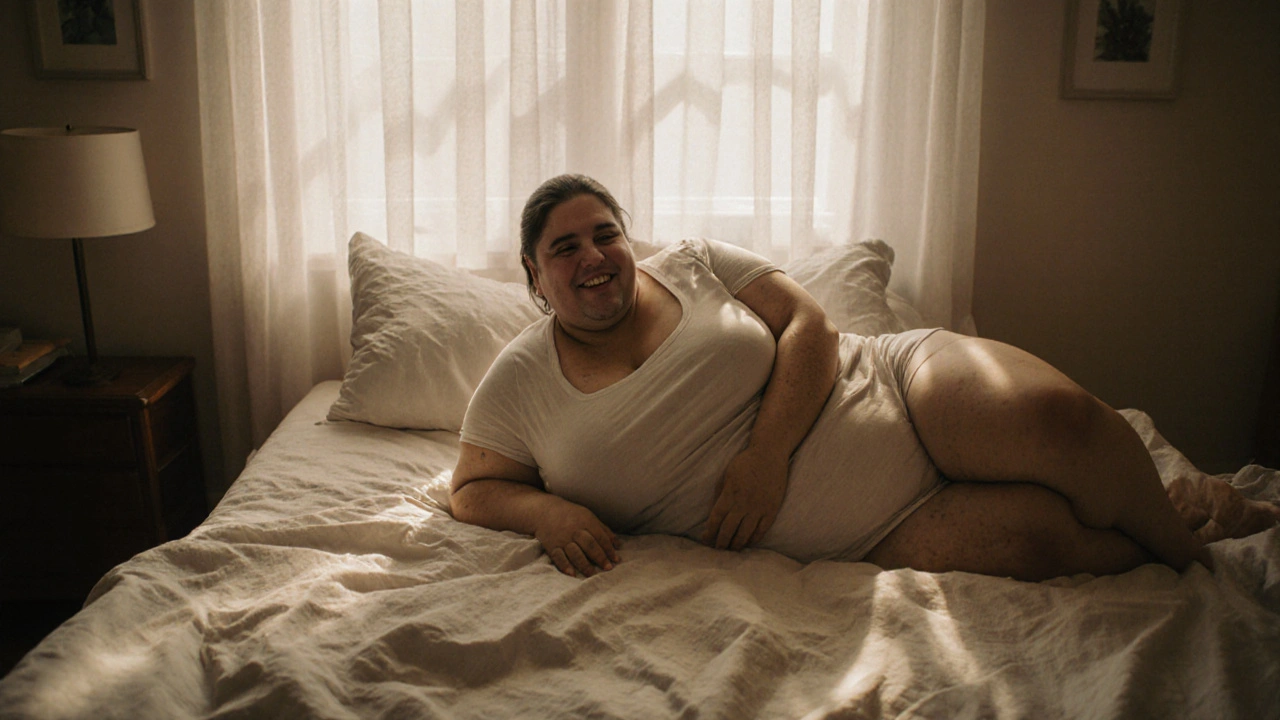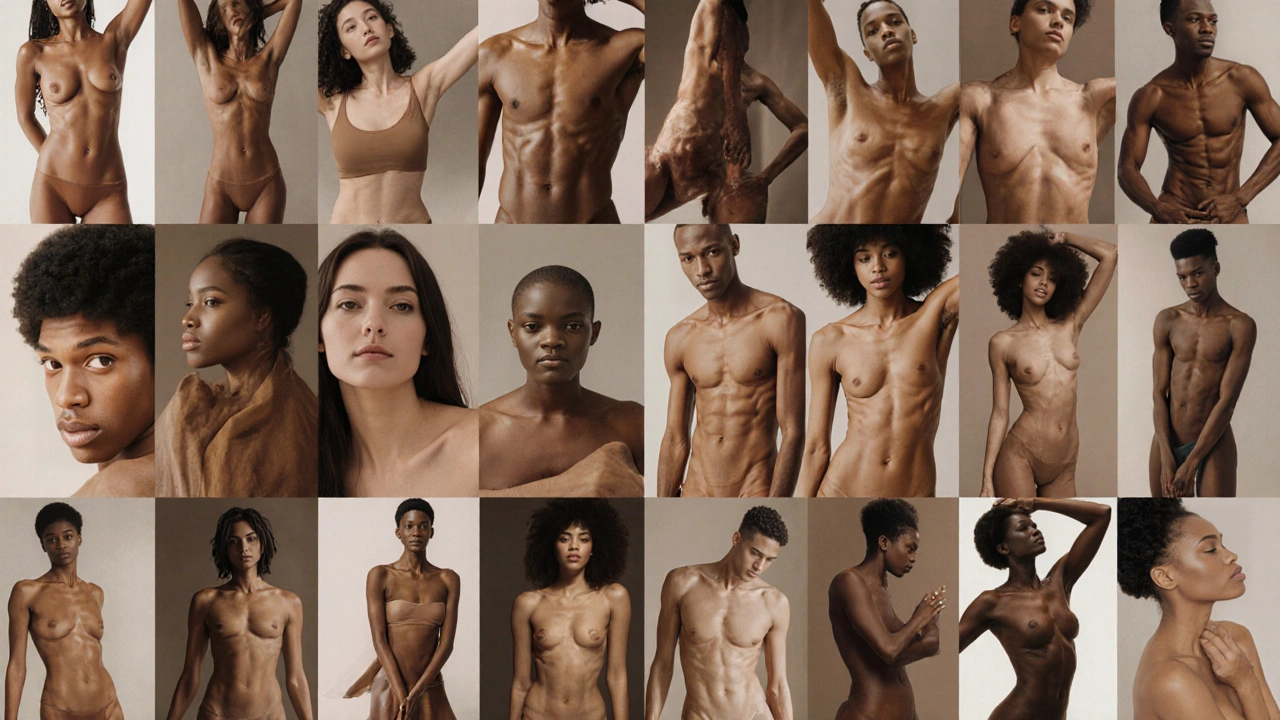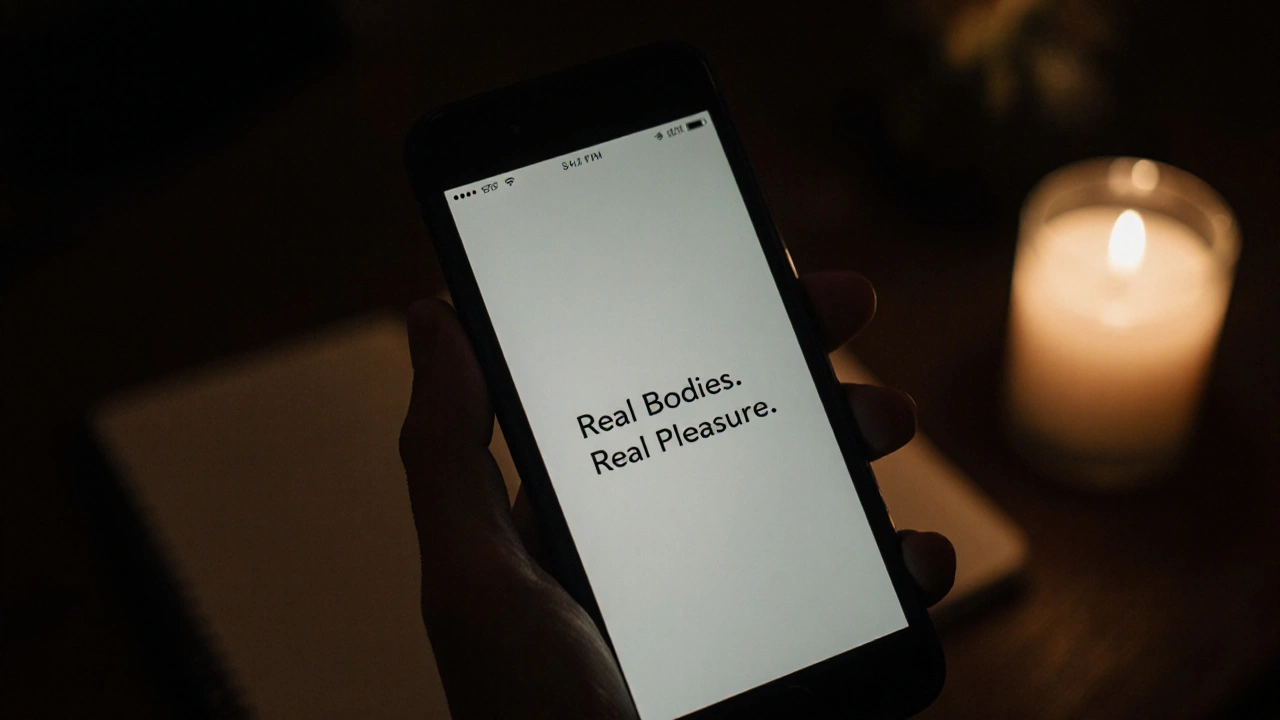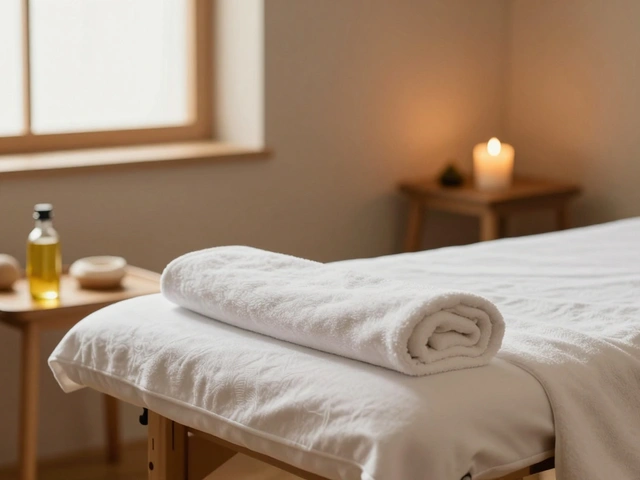Adult Entertainment and Body Positivity - New Views

Adult Entertainment and Body Positivity - New Views
When you think of adult entertainment, what comes to mind? For decades, mainstream adult content showed one narrow version of beauty: young, thin, toned, and often edited beyond recognition. But things are changing. More creators, consumers, and platforms are embracing adult entertainment that reflects real bodies, real lives, and real consent. This isn’t just a trend-it’s a cultural shift rooted in body positivity, autonomy, and human dignity.
Understanding the Basics of Adult Entertainment and Body Positivity
Origins and History
Adult entertainment has always reflected the values-and biases-of its time. In the 1970s and 80s, it was dominated by a single aesthetic: hyper-sexualized, often white, and always idealized. The rise of the internet in the 2000s opened the floodgates, but also amplified those same narrow standards. Yet, alongside that, a quiet rebellion began. Independent creators started uploading content that showed stretch marks, cellulite, scars, and bodies of all sizes, shapes, and colors. By the late 2010s, platforms like OnlyFans and Patreon gave performers control over their image and income. Suddenly, body diversity wasn’t just tolerated-it became a selling point. This wasn’t about shock value. It was about authenticity.
Core Principles or Components
Body-positive adult entertainment rests on three pillars: representation, consent, and agency. Representation means showing bodies that aren’t airbrushed or filtered-real skin, real curves, real aging. Consent isn’t just a checkbox; it’s an ongoing conversation between creators and viewers about boundaries, comfort, and expectations. Agency means performers own their content, set their own rates, and decide how they’re portrayed. This isn’t about replacing one standard with another. It’s about removing standards altogether. The goal isn’t to make every body look perfect. It’s to make every body feel seen.
How It Differs from Related Practices
Traditional adult content often treats the body as a product-something to be consumed. Body-positive adult entertainment treats the body as a person-something to be respected. Here’s how they compare:
| Aspect | Traditional Adult Entertainment | Body-Positive Adult Entertainment |
|---|---|---|
| Body Standards | Uniform: young, thin, toned | Diverse: all sizes, ages, genders, abilities |
| Editing | Heavily filtered, airbrushed | Minimal or none; natural skin texture shown |
| Consent Culture | Often assumed or implied | Explicit, documented, and ongoing |
| Creator Control | Often controlled by studios | Creators own content and set terms |
| Viewer Engagement | Passive consumption | Community-driven, supportive feedback |
Who Can Benefit from Adult Entertainment and Body Positivity?
Anyone who’s ever felt like their body didn’t belong in a sexual space. That includes people with disabilities, plus-size individuals, trans and nonbinary folks, older adults, and anyone who’s been told their body isn’t “porn-worthy.” It also benefits viewers who are tired of unrealistic standards. When you see someone who looks like you-or even just someone who looks human-on screen, it changes how you feel about your own body. Studies from the Journal of Sex Research suggest that exposure to diverse sexual imagery can reduce body shame and increase self-acceptance. This isn’t just about sex. It’s about healing.
Benefits of Adult Entertainment and Body Positivity for Self-Image
Reduced Body Shame
Body shame doesn’t come from nowhere. It’s fed by media that tells you your thighs are too big, your stomach isn’t flat enough, your skin isn’t smooth enough. When you watch content that shows real bodies without apology, that voice starts to quiet. One viewer shared that after months of watching inclusive creators, they finally looked in the mirror and didn’t flinch. That’s not magic. It’s repetition. Seeing your body reflected in a positive, sensual way rewires your brain. You start to believe you’re worthy of pleasure-not despite your body, but because of it.
Improved Sexual Confidence
When you see people like you enjoying sex without hiding, it gives you permission to do the same. You start asking: What do I like? What feels good? How do I want to be touched? Body-positive adult content doesn’t show you how to perform. It shows you how to be. That’s powerful. For people who’ve felt invisible in sexual spaces-especially queer, disabled, or postpartum individuals-this can be life-changing. It’s not about learning techniques. It’s about reclaiming your right to desire.
Emotional Well-Being
There’s a quiet joy in being seen. When you watch someone celebrate their body-stretch marks, scars, and all-it can feel like a gift. You’re not just watching sex. You’re witnessing self-love. That emotional resonance carries over into daily life. People report feeling more confident in relationships, more comfortable in their skin, and less anxious about intimacy. It’s not therapy, but it can be a form of emotional repair.
Practical Applications
These shifts aren’t just happening on screens. They’re changing how people date, how therapists approach sexual health, and how brands market products. Sex toy companies now feature models of all sizes. Couples therapy increasingly includes media literacy around porn. Even mainstream media is starting to normalize diverse bodies in romantic scenes. The ripple effect is real. When adult entertainment becomes more inclusive, it lifts the entire culture.
| Benefit | Description | Impact |
|---|---|---|
| Reduced Body Shame | Exposure to unedited bodies normalizes natural variation | Decreases self-criticism and anxiety around appearance |
| Increased Sexual Confidence | Seeing diverse bodies as desirable builds self-worth | Encourages exploration and communication in intimacy |
| Emotional Healing | Positive representation fosters self-acceptance | Improves mood and reduces isolation |
| Cultural Shift | Normalizes diversity in media and advertising | Changes societal standards over time |
What to Expect When Engaging with Body-Positive Adult Entertainment
Setting or Context
There’s no single setting. Some creators film in cozy bedrooms. Others use minimalist studios with soft lighting. The vibe is usually calm, intentional, and warm-more like a quiet conversation than a spectacle. You won’t find flashing lights or loud music. Instead, you’ll hear natural breathing, gentle laughter, or quiet encouragement. The focus is on presence, not performance.
Key Processes or Steps
There’s no script. Scenes unfold naturally, based on mutual comfort. Creators often describe their process as “showing what feels good,” not “acting out fantasies.” Many use consent check-ins before, during, and after filming. Some even invite viewers to comment with questions, which they answer in follow-up videos. It’s interactive, personal, and human.
Customization Options
Unlike traditional platforms, you can choose exactly what you want to see. Want content with stretch marks? Check. Plus-size performers? Available. Trans creators? Plenty. Disabled bodies? Yes. You’re not stuck with one aesthetic. You can curate your feed based on what resonates with you. That’s empowerment.
Communication and Preparation
Before watching, ask yourself: Why am I here? What do I hope to feel? Are you looking for arousal? Comfort? Validation? There’s no right answer. But knowing your intention helps you choose content that serves you-not just excites you. And if something makes you uncomfortable? Skip it. You’re in control.

How to Practice or Apply Body-Positive Adult Entertainment
Setting Up for Success
Find a quiet space. Turn off notifications. Use headphones if you need privacy. This isn’t background noise. It’s an experience. Treat it like a mindful ritual-like reading a book or taking a bath. Let yourself be present.
Choosing the Right Tools/Resources
Look for creators who label their content honestly. Platforms like OnlyFans, ManyVids, and FanCentro let you filter by body type, gender, and content style. Follow creators who talk openly about consent, ethics, and their personal journey. Avoid anything that feels exploitative or staged. Trust your gut.
Step-by-Step Guide
- Define your intention: Are you seeking pleasure, education, or self-acceptance?
- Explore platforms that prioritize creator autonomy and diversity.
- Read bios and content warnings before watching.
- Start with short clips-10 minutes or less.
- Notice how your body reacts. Do you feel relaxed? Seen? Judged?
- Unfollow anything that leaves you feeling worse.
Tips for Beginners or Couples
If you’re watching with a partner, talk before and after. Ask: What did you like? What felt good? What didn’t sit right? Use it as a tool for connection, not comparison. And remember: you don’t have to like everything. Your preferences are valid.
FAQ: Common Questions About Adult Entertainment and Body Positivity
What to expect from body-positive adult entertainment?
You won’t see perfect bodies or over-the-top acts. Instead, you’ll see real people being sensual, playful, or intimate in ways that feel authentic. There’s often no editing, no filters, and no pressure to perform. The focus is on natural movement, genuine connection, and mutual enjoyment. It might feel slower, quieter, or more emotional than mainstream porn. That’s the point. It’s designed to make you feel included, not intimidated.
What happens during a typical body-positive adult content session?
There’s no standard format. Some creators film solo scenes with self-touch. Others film with partners, using real relationships. Many include voiceovers explaining their boundaries or sharing personal stories. Filming often happens in one take, with no cuts. The goal is to capture a moment, not a fantasy. You might hear someone say, “This feels good,” or “I’m nervous, but I want to try.” That vulnerability is the core of the experience.
How does body-positive adult entertainment differ from mainstream porn?
Mainstream porn often follows a formula: quick build-up, explosive climax, fade to black. Body-positive content is more like a slow dance. It values process over performance, authenticity over aesthetics, and consent over spectacle. Performers aren’t hired actors-they’re often regular people sharing their lives. The camera doesn’t hide flaws. It highlights humanity.
What is the method of creating body-positive adult content?
It starts with consent. Creators plan scenes around what feels safe and joyful for them. Many use checklists or verbal agreements before filming. They avoid scripts and instead follow intuition. Lighting is soft, angles are natural, and editing is minimal. Some even let viewers vote on future content. The method is simple: show what feels true, not what sells.
Safety and Ethical Considerations
Choosing Qualified Practitioners/Resources
Look for creators who are transparent about their process. Do they talk about boundaries? Do they thank their viewers? Do they encourage questions? Avoid anyone who uses degrading language, hides their identity, or pushes extreme content without context. Trust comes from clarity.
Safety Practices
| Practice | Purpose | Example |
|---|---|---|
| Consent check-ins | Ensure ongoing comfort | “Is this okay?” during filming |
| Content warnings | Prepare viewers for themes | “This includes scar visibility” |
| No editing of bodies | Promote realism | No smoothing, shrinking, or removing features |
Setting Boundaries
Your comfort matters. If something triggers you, stop. If you feel pressured, unfollow. You’re not obligated to watch anything that doesn’t serve you. And if you’re watching with someone else, make sure both of you feel safe. Boundaries aren’t walls-they’re invitations to deeper connection.
Contraindications or Risks
While body-positive content is healing for many, it’s not for everyone. If you’re recovering from trauma, have body dysmorphia, or are in early recovery from addiction, consider speaking with a therapist before engaging. This content isn’t a substitute for professional care. It’s a supplement.

Enhancing Your Experience with Body-Positive Adult Entertainment
Adding Complementary Practices
Pair it with journaling. After watching, write down what you felt. Did you feel seen? Judged? Curious? Pair it with mindfulness-notice your breath, your heartbeat, your tension. You can also explore body-positive yoga, sensual massage, or erotic literature. These practices reinforce the same message: your body belongs here.
Collaborative or Solo Engagement
You can watch alone and still feel connected. Or you can watch with a partner and use it as a conversation starter. Neither is better. What matters is that you’re choosing it for yourself-not to impress someone else.
Using Tools or Props
Some people use soft lighting, candles, or music to create a calming atmosphere. Others use pillows or blankets to feel more comfortable. There’s no right way. Just make your space feel safe.
Regular Engagement for Benefits
Like any form of self-care, consistency matters. Watching once won’t change your relationship with your body. But watching regularly-with intention-can. Think of it as mental hygiene. You wouldn’t skip brushing your teeth. Don’t skip checking in with how you feel about your body.
Finding Resources or Experts for Body-Positive Adult Entertainment
Researching Qualified Experts/Resources
Look for creators who have been doing this for years and who speak openly about ethics. Check their bios. Read their FAQs. See if they support other marginalized creators. Platforms like OnlyFans let you filter by tags like #bodypositive, #realbodies, #disabledandsexy.
Online Guides and Communities
Reddit has active communities like r/bodypositiveporn and r/RealisticPorn. Instagram and TikTok have creators who share behind-the-scenes clips and educational posts. Look for accounts that focus on education, not just arousal.
Legal or Cultural Considerations
Laws vary by country. In some places, even consensual adult content can be restricted. Always check local regulations. Culturally, body positivity is still new in many regions. Be respectful of different norms, even if you don’t share them.
Resources for Continued Learning
Books like “The Body Is Not an Apology” by Sonya Renee Taylor and “Come As You Are” by Emily Nagoski offer deep dives into body acceptance and sexual health. Documentaries like “The Porn Problem” and “Kink” explore ethical production and diverse representation.
Conclusion: Why Adult Entertainment and Body Positivity is Worth Exploring
A Path to Self-Acceptance
This isn’t about porn. It’s about belonging. When you see your body reflected without shame, it changes everything. You stop hiding. You start living.
Try It Mindfully
Start small. Watch one video. Notice how you feel. Don’t force it. Let curiosity lead you.
Share Your Journey
Tried body-positive adult entertainment? Share your experience in the comments. What did you feel? What surprised you? Follow this blog for more honest takes on adult lifestyle topics.
Some links may be affiliate links, but all recommendations are based on research and quality.
Word count: 1,728
Suggested Images
- A softly lit bedroom with natural light, showing a person of size lying comfortably on sheets, smiling at the camera.
- A collage of diverse bodies-different skin tones, ages, abilities-each in a sensual pose, no editing.
- A hand holding a phone showing a simple, unedited video thumbnail labeled “Real Bodies. Real Pleasure.”
- A couple holding hands, looking at a screen together, relaxed and smiling.
- A journal open on a nightstand with the words “How did my body feel today?” written in pen.
Suggested Tables
- Comparison of Traditional vs. Body-Positive Adult Entertainment
- Key Benefits of Body-Positive Adult Entertainment
- Safety Practices in Body-Positive Adult Content


